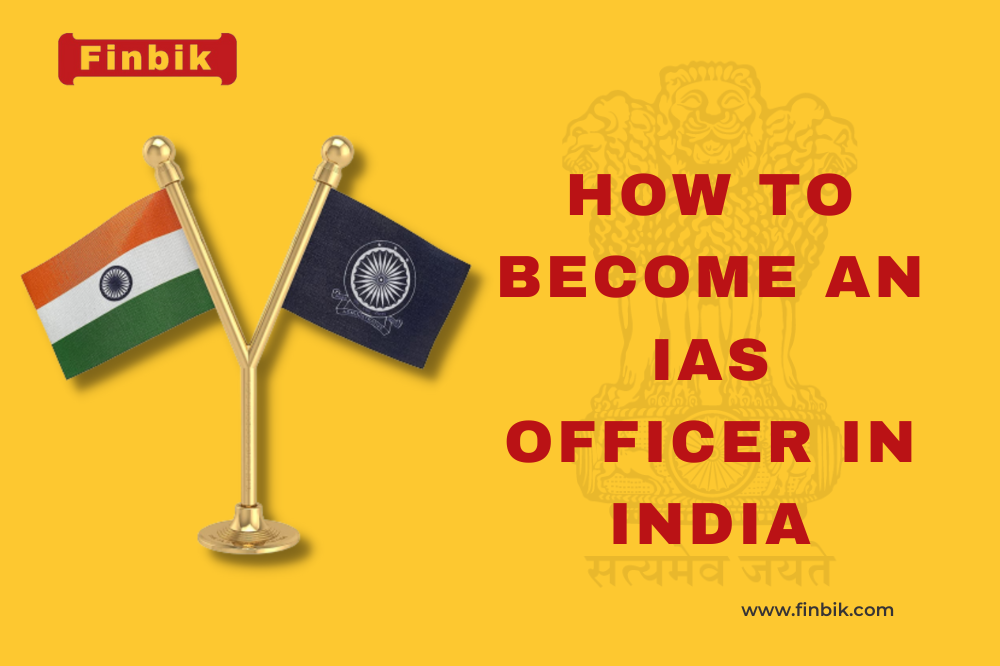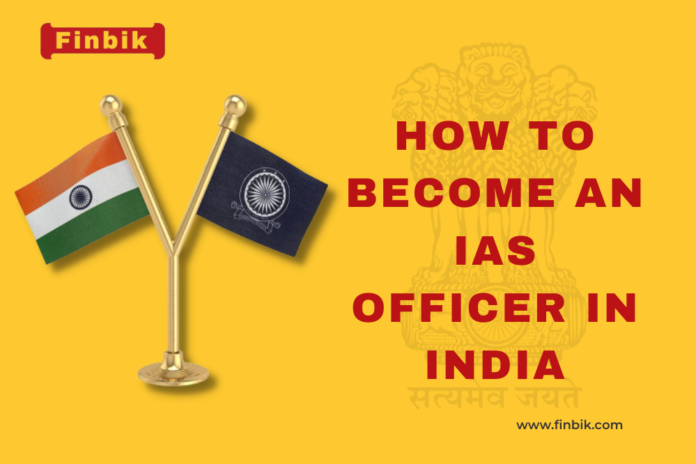Becoming an IAS officer is one of the prestigious job opportunities in India. An IAS officer provides valuable feedback to the central and state governments for better government decision-making as well as implementing the policies formulated by them. The major role of an IAS officer is to assist the government in policy framing, its administration, its implementation, and providing key feedback about the impact of the policies to the concerned authority.
In this article, we will see some of the key points on how to become an IAS officer, what are the roles of an IAS officer, how to prepare for the civil services examination to become an IAS officer in India, and at last the advantages and benefits that an IAS officer gets.
How to become an IAS officer in India
Steps to prepare for the civil services exam to become an IAS officer
Advantages and benefits that an IAS officer get
Salary Structure of IAS officers at a number of years of service

How to become an IAS officer in India
Once the student has graduated in any discipline from a recruited board of education, the student who is a resident of India must qualify for the civil services examination. The Union Public Commission of India is the conducting body of the civil services exam, also known as the IAS exam or UPSC exam to recruit civil servants for about 25 services including IAS, IPS, IFS, central government services as well as other allied services. Annually, UPSC releases the invitation for application rounds for the civil services exam in January or February.
The minimum age limit for an individual who wishes to apply for UPSC examinations is listed below:
| Category | Minimum age limit | Number of attempts |
| General | 21-32 years | 6 attempts |
| OBC | 21-35 years | 9 attempts |
| SC-ST | 21-37 years | No limit |
| Physically disabled candidate | 21-42 years | No limit |
There are three phases of the Civil services examination namely:
- Preliminary examination,
- Main Examination, and
- Personality Test or Interview round.
Let us discuss in detail each of the phases:
1. Preliminary Examination
| Paper name | No. of Questions | Subjects to be covered | Marks | Duration | Result of exam |
| Paper I: General Studies | 100 | History
Politics Geography Science Current Affairs Economy |
200 | 120 minutes | The marks will be considered for a cut-off of the next round |
| Paper-II: General Studies-II (CSAT) | 80 | Mathematics
Logical – Reasoning Reading Comprehension |
200 | 120 minutes | Minimum 33% to be scored to qualify for next round |
The above table illustrates the two papers conducted in phase 1 of the civil services examination. A candidate is selected for the next stage of the examination only if they qualify in the preliminary round.
2. Main Examination
| Paper name | Subject | Duration | Marks | Nature of paper | Paper type |
| Paper A | Compulsory Indian Language | 180 minutes | 300 | Qualifying | Descriptive |
| Paper B | English
|
180 minutes | 300 | Qualifying | Descriptive |
| Paper I | Essay Writing | 180 minutes | 250 | Merit | Descriptive |
| Paper II | General Studies I | 180 minutes | 250 | Merit | Descriptive |
| Paper III | General Studies II | 180 minutes | 250 | Merit | Descriptive |
| Paper IV | General Studies III | 180 minutes | 250 | Merit | Descriptive |
The main examination is conducted in nine papers mentioned above. Each examination covers a different topic regarding general knowledge and soft skills.
3. Interview Round
This phase is the last one in the civil services examination. One has to appear before a panel of highly qualified professors and civil servants who assess them. The interview focuses on different general, personal, and current affairs and lasts up to 20 minutes per person. Facing the UPSC interview panel is a daunting task but with proper soft skill training, knowledge about the topics, and with confidence, one can easily ace the interview round and complete the civil services examination.
Steps to prepare for the civil services exam to become an IAS officer
The preparation strategy paves the way for how to become an IAS officer in India with the proper approach and determination. The proper strategy also increases self-confidence in students and clears the question in their minds on how to become an IAS officer. Generally, it takes a year to prepare for the civil services examination. So, one needs to start preparing a year in advance to study the entire syllabus with firm knowledge. Below mentioned are some of the basic steps to start the preparation for the Civil Services examination.
Step 1: Gain knowledge regarding the exam thoroughly
The first step is to know what you are preparing and study the entire exam pattern and syllabus of the UPSC exam well. Always keep the syllabus near to your study material to assess it whenever needed. One should also solve previous year’s papers to get an idea of how the questions are asked.
Step 2: Build a strong base
A strong foundation always helps kick start the Civil Services examination preparation. Gain knowledge of the subjects through NCERTs to get an overview of what you need to study in detail for exam preparation.
Step 3: Master Current Affairs of India
Having precise knowledge of current affairs gives a boost to your civil services journey as every year straightforward questions are asked about the current affairs in the preliminary examination. It is crucial to read and study current affairs of about past 2-3 years for UPSC. Reading newspapers daily is a great way to gain knowledge of current affairs.
Step 4: Giving mock tests
Mock tests give you a hint of how and what needs to be updated in your learning journey to upskill your preparation. Mock tests help in analyzing the topics and provide you a chance to work on your weak areas. Writing answer perfectly increases the grammatical skills for perfect answering personal questions.
Step 5: Revision
The last but most important step in cracking the civil services examination is revision. Always revise the topics to polish your knowledge skills. Never stop reading the current affairs as they help a lot for future interviews. Revision always helps in concept retention. There are many dates and events to remember for general studies which students tend to forget. Revision makes sure that they always remember those concepts with extra benefits.
Advantages and benefits that an IAS officer get
The main reason an individual searches for how to become an IAS officer is the advantages and benefits that an IAS officer enjoys. The basic starting salary of an IAS officer is Rs. 56,100/- (As per the 7th Central Pay Commission of India). The highest position of an IAS officer is that of the cabinet secretary of India with a salary of Rs. 2,50,000/-
Some of the benefits that an IAS officer gets are:
- Accommodation with subsidy facility.
- Personal security and service staff on demand.
- No charges for mobile devices, telephone bills, and internet connections.
- While on duty, staying in government hotels or bungalows is not charged.
- Free transport facility for all state and district level officers.
- Monthly pension after retirement.
Salary Structure of IAS officers at a number of years of service
| Pay Level | Starting Salary (INR) | No. of years (Service) | Post | ||
| District Admin | State Secretariat | Central Secretariat | |||
| 10 | 56,100 | 1-4 | Sub-Divisional Magistrate | Undersecretary | Assistant Secretary |
| 11 | 67,700 | 5-8 | Additional District Magistrate | Deputy Secretary | Under-Secretary |
| 12 | 78,800 | 9-12 | District Magistrate | Joint Secretary | Deputy Secretary |
| 13 | 1,18,500 | 13-16 | District Magistrate | Special Secretary/Director | Director |
| 14 | 1,44,200 | 16-24 | Divisional Commissioner | Secretary/commissioner | Joint Secretary |
| 15 | 1,82,200 | 25-30 | Divisional Commissioner | Principal Secretary | Additional Secretary |
| 16 | 2,05,400 | 30-33 | No equivalent rank | Additional Chief Secretary | No equivalent rank |
| 17 | 2,25,000 | 34-36 | No equivalent rank | Chief Secretary | Secretary |
| 18 | 2,50,000 | 37+ years | No equivalent rank | No equivalent rank | Cabinet Secretary of India |
In this article, we clarified the question: “how to become an IAS officer”. The path to becoming an IAS officer may be tough and requires firm determination and strong will, but the results are always fruitful. In India, becoming an IAS officer is one of the highest honors since it allows one to serve the nation and improve the infrastructure of the country to make it a better place to live. The article also provided basic steps that one needs to remember to ace the Civil Service Examination. With the information provided in this article, one can start preparing for the examinations without any further delay and with a proper point of view.
Articles You May Like

